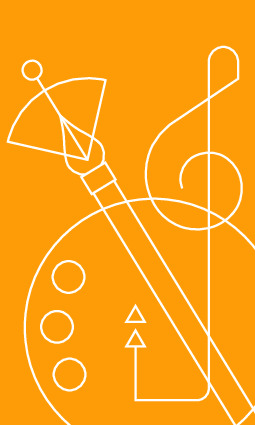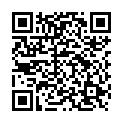|
|
|
| Module code: MKM-230 |
|
4V (4 hours per week) |
|
6 |
| Semester: 2 |
| Mandatory course: yes |
Language of instruction:
German |
Assessment:
Written exam (90 mins. / Can be repeated semesterly)
[updated 30.06.2024]
|
MKM-230 Cultural Management, Master, ASPO 01.04.2014
, semester 2, mandatory course
MKM-230 Cultural Management, Master, ASPO 01.10.2015
, semester 3, mandatory course
|
60 class hours (= 45 clock hours) over a 15-week period.
The total student study time is 180 hours (equivalent to 6 ECTS credits).
There are therefore 135 hours available for class preparation and follow-up work and exam preparation.
|
Recommended prerequisites (modules):
MKM-110
MKM-120
[updated 08.07.2014]
|
Recommended as prerequisite for:
|
Module coordinator:
Prof. Dr. Ralf Rockenbauch |
Lecturer:
Dozierende des Studiengangs
[updated 08.07.2014]
|
Learning outcomes:
Students will develop, expand and deepen their specialized and methodological knowledge about:
the framework conditions in cultural management
the strategic planning of the topical areas of cultural organizations
the restrictions relevant to the provision of services in these sectors (service chain in the overall system of the cultural industry)
the consideration of parameters outside the company (economic, ecological, technical, social, political, legal framework conditions)
the consideration of internal company parameters (company goals, company philosophy and culture, leadership understanding, operational and structural organization, working conditions, market position and company earnings).
the analysis of current developments, market and competition parameters in a regional, national and international context
structural models and system management in the cultural economy
After successfully completing this module, students will:
have gained deeper insights into the framework conditions of the cultural economy and be able to apply appropriate management methods.
be able to deal with the advancing internationalization/Europeanization of framework conditions. They will be able to identify the most important (inter-) national framework conditions. They will be familiar with important (inter-) national framework conditions, as well as the negotiation and drafting of (inter-) national treaties. They will be familiar with the basic principles and the limits of cross-border activities. They will be able to use the relevant (inter-) national scientific terminology.
International and intercultural relevance:
Study of international framework conditions in the cultural economy
Examples from international case studies with a high practical relevance (application-oriented teaching)
Practical relevance:
Economic and political consulting in the cultural sector, taking into account current/future framework conditions
Conception of framework conditions and the application of management methods for organizations in the cultural sector
Social competence
Guest lectures, excursions (together with students from different semesters and study programs)
In particular management concepts and the design of framework conditions with high relevance for sustainable management in the cultural sector
Students will expand and deepen their ability to use modern presentation techniques, their project and team work skills, as well as their scientific working skills.
After successfully completing this module, students will:
be able to analyze, explain and shape framework conditions in the cultural industry.
understand the planning and control methods in culture management
be able to select, explain and apply appropriate management methods to the respective framework conditions.
[updated 30.06.2024]
|
Module content:
Terms and characteristics for the definition of framework conditions in culture management
Strategic planning for cultural organizations
Service chain in the overall system of the culture industry
Consideration of parameters outside the company (economic, ecological, technical, social, political, legal framework conditions)
Consideration of internal company parameters (company goals, company philosophy and culture, leadership understanding, operational and structural organization, working conditions, market position and company earnings).
Analysis of current developments, market and competition parameters in a regional, national and international context
Structural models and system management in the culture industry
Conception of framework conditions for (regional) organizations in the cultural sector
Project, political and economic consulting
Reflection and analysis of changes in the (global) environment and of cultural organizations
Management tasks and management areas in the culture industry
Legal framework and regulations of event law, such as
o legal relationships between organizers, artists and visitors, contract law and service disruptions
o general aspects of copyright and trademark law, general personal rights and the right to one´s own image
o copyright collectives and artists´ social security contributions
o insurance, liability and licensing aspects
Safety, crisis and procurement management
[updated 30.06.2024]
|
Recommended or required reading:
Current literature lists will be made available to students at the beginning of the semester (exemplary references):
Bowdin, G., Allen, J., O΄Toole, W., Harris, R., & Mc Donnell, I., Events Management, Great Britain: Elsevier, aktuellste Auflage
Hoyle, L., Event marketing how to successfully promote events, festivals, conventions and expositions, Wiley, New York, aktuellste Auflage
Hungenberg, H., Problemlösung und Kommunikation, München, aktuellste Auflage
Letzner, V., Tourismusökonomie Volkswirtschaftliche Aspekte rund ums Reisen, Opaschowski, H.W.: Deutschland 2020. Wie wir morgen leben Prognosen der Wissenschaft. Wiesbaden 2006
Opaschowski, H.W., Freizeitwirtschaft - Die Leitökonomie der Zukunft. Zukunft. Bildung. Lebensqualität, 2007
Opaschowski, H.W.: Freizeitökonomie Marketing von Erlebniswelten. Opladen 1995
Schulze, G.: Die Erlebnisgesellschaft, Kultursoziologie der Gegenwart Frankfurt 1995
Steinecke, A. (Hrsg.), Erlebnis- und Konsumwelten, Oldenbourg, München, 2000
Bischof, R., Event-Marketing Emotionale Erlebniswelten schaffen, Zielgruppen nachhaltig binden, Berlin, aktuellste Auflage
[updated 30.06.2024]
|


